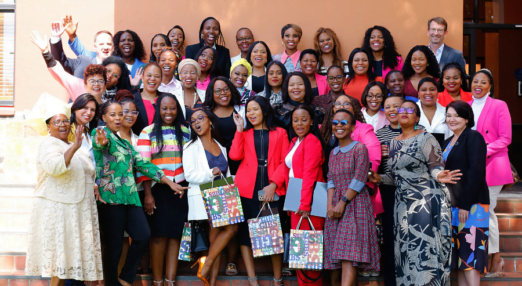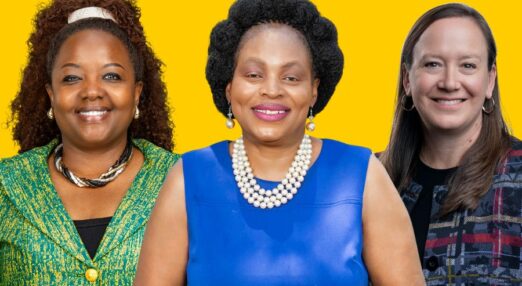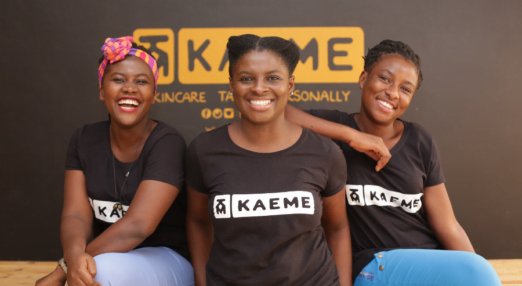Supporting Oaxaca’s Most Vulnerable Women Through the Coronavirus Crisis
Our Senior Programme Manager Elizabeth Wells explains how we are meeting this needs of participants on our Mujeres Ave programme.

In Villa de Zaachila, close to 17,000 people live, work and study next to the largest rubbish dump in the state of Oaxaca, Mexico. Two thirds of Oaxaca’s population live in poverty, and the community of Villa de Zaachila, where our Mujeres AVE project is based, is particularly marginalised. 82% of the area’s homes lack basic services like running water, sewage and electricity, and the landfill causes enormous environmental, social and economic impacts on the area and its community. We set up Mujeres AVE to help the women of Villa de Zaachila set up and grow micro businesses and now, with the crisis of the global COVID-19 pandemic hitting, they need our support more than ever. Our Senior Programme Manager Elizabeth explains how we are meeting this need.
In early March I travelled to Oaxaca, Mexico to launch activities for the second year of our Mujeres AVE project, which is delivered in collaboration with our local partner SiKanda, and funded by the Trafigura Foundation. Through Mujeres AVE, we support women micro-entrepreneurs from Villa de Zaachila in Oaxaca to better manage their businesses, money and lives, which has a fantastic, positive knock-on effect for their families and the wider community. We deliver face-to-face formal skills training, which is complemented by ongoing workshops and coaching to help them develop networks, build confidence and access new markets.
As you can see, these women have enormous potential (English subtitles can be brought up with the option on the bottom-right):
During my trip, I visited several Mujeres AVE participants’ businesses and had an opportunity to hear about their impressive achievements – such as using the skills they learned through the project to better manage their finances, improve their savings and invest in their business to help it grow. Hearing these stories, I was excited at the prospect of expanding our training course to more women in the second year of the project. I would never have imagined that less than two months later, the SiKanda team and I would be working closely to provide Mujeres AVE participants with remote business and wellbeing support due to a global pandemic.
Almost all women’s businesses in the Zaachila area are informal. The businesses are mainly in one of two sectors: 51% in food preparation (e.g. tortillas), while 35% are grocery stores, or shops for clothing or other items. The vast majority (83%) only sell their products or services to people living nearby in eastern Villa de Zaachila. For many women, their business represents the only source of income for the family, and the implementation of social distancing measures has made it extremely difficult for some to continue to earn income. Since the pandemic started, all Mujeres AVE participants have reported that their businesses have been affected. 15% specified that they have had no sales because potential customers are only interested in purchasing food; 6% said they have not had any sales because they do not have enough product to sell; 33% have had no sales because customers do not have enough money to buy their products. This stands to have a devastating impact on the area’s families and the community in general.
Although we have temporarily ceased all in-person business training and coaching activities for safety reasons, we have continued to provide alternative methods of support for Mujeres AVE participants, where possible, so we can help them manage the effects of this crisis:
- We purchase phone credit to give them unlimited Facebook and WhatsApp access, as many of the women cannot afford to do so themselves. This has enabled us to continue providing business coaching support over the phone. We use these discussions as an opportunity explore alternative business ideas to generate income, as well as check in on the general wellbeing and mental health of the women.
- We post regularly on Facebook and WhatsApp with updates on the virus (since a lack of information is a key challenge for women) as well as sharing information on how to protect yourself and your families – for example, proper hand-washing techniques.
- We share pre-recorded training videos that build on the business training topics already discussed in the course.
- We distribute food parcels to the most vulnerable women from the project, and we hope to continue to do so.
Although the women we are currently supporting through Mujeres AVE had participated in the programme through different training cohorts over the past year, we have noticed that the women are forming an extremely strong, and supportive network, as they’re now able to be in regular communication with the phone credit we purchased.
We are confident that despite these difficulties, the women’s networks and relationships with each other will emerge much stronger after the virus, and look ahead to more positive times (again, click bottom-right in the video viewer to add English subtitles):
Despite these difficulties, the SiKanda team and I are already looking ahead to beyond the pandemic. We are ready to provide the women entrepreneurs with the support they will need after this crisis and are developing ideas for alternative training topics, such as how to sell products online, including through social media.
Discover more news:
-

We’re supporting 45,000 women across Sub-Saharan Africa with DHL Express
Through our renewed multi-year partnership with DHL Express, we'll expand our reach and deepen our impact.
Read more
-

Announcing our new trustees
We are delighted to welcome Suzanne Ehlers, Francesca Nxedhlana and Winnie Wambugu to our Board of Trustees.
Read more
-

Looking back on 10+ years of collaboration with Marsh McLennan
Exploring our impactful partnership.
Read more
